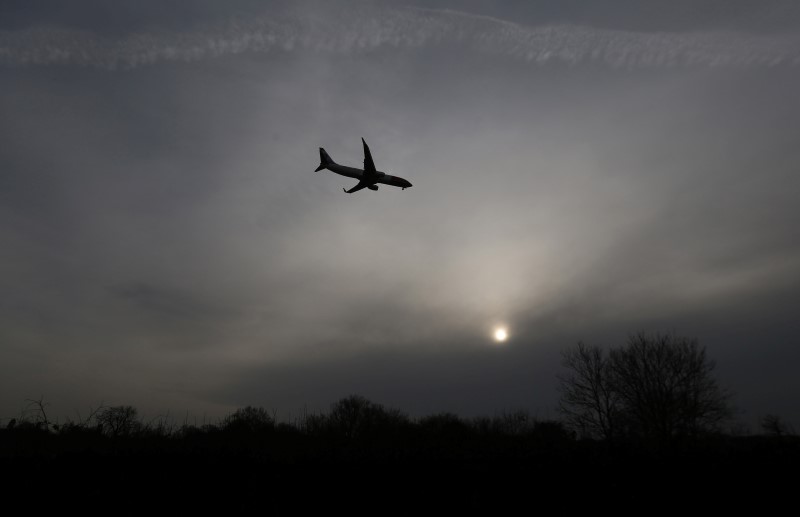By Valerie Volcovici and Allison Lampert
WASHINGTON/MONTREAL (Reuters) - International aviation talks have hit a roadblock over a plan to limit carbon emissions for aircraft in a clash between developed and developing countries on how they view their responsibilities, two sources familiar with the matter said.
High-level officials from the European Union, the United States, China, and others are scrambling to devise the plan before a meeting of the United Nations aviation agency's governing council in May.
A special meeting has been called for April in Montreal for policy makers from about a dozen countries to confer on the plan, which would achieve carbon-neutral growth in the aviation sector from 2020 onwards, the sources said on condition of anonymity because the talks are confidential.
The market-based plan must win the support of the International Civil Aviation Organization’s 190 member countries at a September assembly, or risk the EU breaking off talks and imposing its own emissions trading scheme on international airlines.
While other transportation modes, such as the maritime industry, are also discussing ways to limit emissions, the world's attention is now centered on aviation - a sector that would be the world’s seventh largest carbon emitter if it were a country.
Aviation was excluded from the landmark climate accord in Paris in December when countries agreed to limit the rise in global temperatures to "well below" 2 degrees Celsius (3.6 degrees Fahrenheit) above pre-industrial levels.
“In the past year, the spotlight was on Paris. Now it’s on Montreal,” said Annie Petsonk, international counsel at the Washington D.C.-based Environmental Defense Fund.
Yet the aviation talks are being stymied by a challenge that's dogged U.N. climate negotiations for nearly two decades - how to deal with the "common but differentiated responsibilities" of developed and developing nations.
Developing countries with fast growing aviation sectors such as China and India want more latitude to produce emissions than developed countries, which are growing more slowly but were responsible for generating the bulk of the industry's historic greenhouse gases.
According to a report by New Climate Economy, most future global air traffic will come from Latin America and Asia. In 1993, more than 73 percent of all traffic was carried by airlines in Europe or North America. By 2033, that share is expected to shrink to 38 percent.
“It (the clash between developed and developing countries) will be a very big problem, especially with China," said one European Union official who spoke on condition of anonymity.
But while the Paris talks resolved those clashes by treating wealthier and poorer nations differently, a two-tiered aviation deal could violate ICAO's own principle of non-discrimination in the organization’s founding treaty, the Chicago Convention.
It also risks giving a competitive advantage to airlines that have significant global market share but are registered in "developing countries", legal experts have argued.
Violeta Bulc, European Commissioner for Transport, said last week that countries are struggling to fairly divide responsibilities for emissions obligations.
"The proposal on the table at ICAO aims to take care of that by sharing the burden of decarbonization across all the actors," said Bulc in an interview with Reuters in Washington D.C.
Bulc said global leaders are working behind the scenes to resolve the dispute. She’s suggested ICAO look at the way the EU handles the issue of burden-sharing, where its richer member states take on different responsibilities than poorer countries like Greece.

"In Europe we also learned that you have to take the specifics of certain countries under consideration."